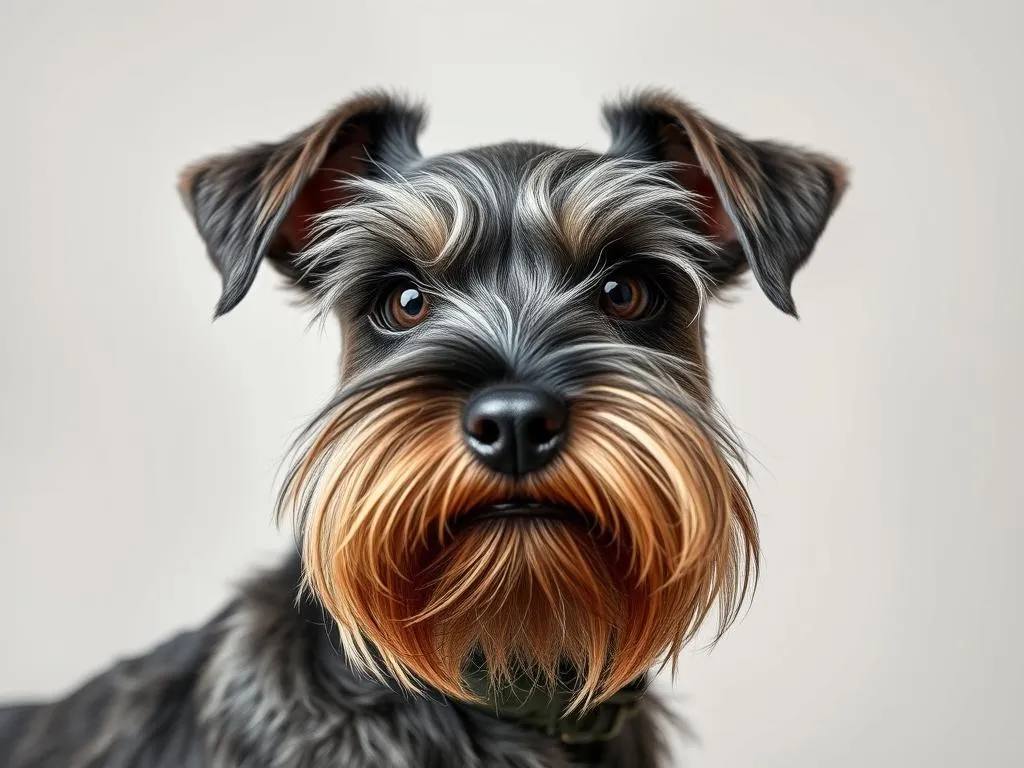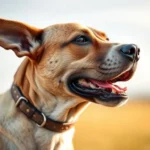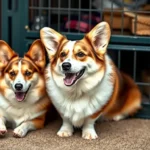
Miniature Schnauzers are an adorable and spirited breed that captivates dog lovers with their distinctive appearance and lively personality. Characterized by their wiry coats, bushy eyebrows, and a beard that gives them an air of sophistication, these dogs are not only charming but also intelligent and alert. Their popularity as pets has soared over the years, making them a common sight in homes across the globe.
To understand the Miniature Schnauzer better, it’s essential to delve into their origins and the historical purposes for which they were bred. This exploration not only provides insight into their characteristics but also helps potential owners appreciate what makes this breed unique and suitable for different lifestyles.
Historical Background of Miniature Schnauzers
Origin of the Breed
The Miniature Schnauzer has a rich ancestry rooted in Germany. They are a smaller version of the Standard Schnauzer and share lineage with breeds like the Affenpinscher and the Poodle. Historically, these dogs were bred to be versatile working companions, excelling at a variety of tasks on farms and in homes.
The breed’s name, “Schnauzer,” is derived from the German word for “snout,” referring to their distinctively shaped muzzle. The origins of the Miniature Schnauzer can be traced back to the late 19th century when farmers sought a dog that could control vermin while also serving as a loyal companion. This need for a compact but sturdy dog led to the development of the breed we know today.
Development Timeline
The development of the Miniature Schnauzer reached several key milestones throughout its history. The initial breeding practices focused on size reduction while maintaining the working characteristics of the Standard Schnauzer. By the early 1900s, these dogs gained recognition in dog shows, highlighting their appeal beyond their utilitarian origins.
In 1924, the American Kennel Club (AKC) officially recognized the Miniature Schnauzer, further cementing their status as a beloved breed. Since then, they have become a staple in American households, transitioning from working dogs to cherished family pets.
Primary Purposes of Miniature Schnauzers
Working Dog Characteristics
Originally, the Miniature Schnauzer was bred primarily as a working dog, taking on important roles in agricultural settings. Their compact size made them ideal for navigating tight spaces, such as barns and stables, where they effectively controlled rats and other pests. This ratting ability was crucial for farmers, as vermin could significantly harm crops and livestock.
In addition to vermin control, Miniature Schnauzers were also employed as guard dogs. Their alertness and keen sense of hearing made them excellent at protecting properties and livestock from intruders. This dual-purpose role showcased their versatility and adaptability in various environments.
Transition to Companion Animals
As lifestyles began to change in the 20th century, the roles of Miniature Schnauzers shifted. Urbanization led to a demand for smaller, companionable breeds that could thrive in city living. This transition saw the Miniature Schnauzer becoming increasingly popular among families and individuals seeking affectionate and spirited pets.
With their friendly demeanor and adaptability to different living situations, Miniature Schnauzers found a new purpose as family companions. Their cheerful disposition and playful nature endeared them to families, making them a favorite choice for households with children and other pets.
Physical Attributes That Support Their Roles
Size and Build
One of the defining features of the Miniature Schnauzer is their compact size. Weighing between 11 to 20 pounds and standing approximately 12 to 14 inches tall at the shoulder, they are perfectly sized for both rural and urban settings. This small stature allows them to be agile and playful while still possessing the strength and sturdiness to perform their original roles as working dogs.
Their balanced build contributes to their versatility, enabling them to engage in various activities, from playful romps in the backyard to participating in dog sports and agility training. These physical attributes make them suitable not only for their historical purposes but also for modern family life.
Unique Coat
The Miniature Schnauzer is known for its distinctive wiry coat, which offers numerous benefits. Their double coat consists of a harsh outer layer and a softer undercoat, providing protection against the elements as well as pests. This coat is not only functional but also adds to their character and charm.
Regular grooming is essential to maintain their coat’s health and appearance. The wiry texture requires clipping and trimming to prevent matting, making grooming a critical aspect of their care routine. This requirement also allows owners to bond with their pets through regular grooming sessions, enhancing the relationship between dog and owner.
Temperament and Behavioral Traits
Personality Overview
The personality of the Miniature Schnauzer is one of their most appealing traits. They are known for their intelligence, loyalty, and alertness. This breed is spirited and often exhibits a playful demeanor that can light up any room. Their keen intellect makes them quick learners, though they can also be a bit stubborn at times.
Miniature Schnauzers are known to form close bonds with their family members, often displaying protective instincts towards their loved ones. This loyalty makes them excellent companions, as they thrive on interaction and affection from their families.
Adaptability and Socialization
One of the remarkable aspects of Miniature Schnauzers is their adaptability. They can adjust well to various living environments, whether it be a small apartment in the city or a spacious home in the suburbs. This adaptability is further enhanced by their sociable nature, which allows them to interact positively with children, other pets, and even strangers.
However, it is essential to provide early socialization and training to ensure they develop into well-rounded adults. Regular exposure to different environments, people, and experiences helps prevent any potential behavioral issues and reinforces their friendly disposition.
Modern-Day Roles of Miniature Schnauzers
Family Companions
In today’s world, Miniature Schnauzers are cherished as family companions. Their affectionate nature, coupled with their playful spirit, makes them a perfect addition to households of all sizes. They thrive on companionship and are known to provide comfort and joy to their families.
Their adaptability to various lifestyles is another reason for their popularity. Whether it’s a busy family with children or an individual seeking a loyal friend, the Miniature Schnauzer fits seamlessly into many different living situations. Their playful antics and loving nature can brighten even the toughest days.
Participation in Dog Sports and Activities
Beyond being family pets, Miniature Schnauzers are highly capable in dog sports and activities. Their intelligence and agility make them excellent candidates for competitions in obedience, agility, and rally. They enjoy the mental and physical stimulation that these activities provide, making them not only engaging pets but also skilled competitors.
In various dog sports, Miniature Schnauzers often showcase their quick reflexes and eagerness to learn, delighting their owners and spectators alike. Their participation in these activities further emphasizes their versatility and adaptability, proving that they thrive when provided with opportunities to engage and bond with their owners.
Potential Health Issues and Care
Common Health Concerns
Like all breeds, the Miniature Schnauzer is prone to certain health issues. Some common concerns include hip dysplasia, eye problems such as cataracts and progressive retinal atrophy, and skin conditions. Regular veterinary check-ups and preventative care are vital in ensuring a long and healthy life for these dogs.
It’s also essential for owners to be aware of the breed’s predisposition to certain conditions and to monitor their pets for any signs of discomfort or health issues. Early detection and treatment can significantly improve the quality of life for Miniature Schnauzers.
Grooming and Maintenance Needs
Proper grooming is an integral part of caring for a Miniature Schnauzer. Their wiry coat requires regular clipping and brushing to prevent matting and to maintain its characteristic look. Grooming should be done every 4 to 6 weeks, along with regular brushing at home to keep their coat healthy and free of tangles.
Additionally, dental care, nail trimming, and ear cleaning are important aspects of their grooming routine. Establishing these practices early on helps ensure that grooming becomes a positive experience for both the dog and the owner.
Conclusion
The Miniature Schnauzer has a fascinating history that reflects their evolution from hardworking farm dogs to beloved family companions. Understanding the breed’s historical purpose and characteristics can provide valuable insights for potential owners, helping them appreciate what makes this breed so special.
Their intelligence, loyalty, and adaptability make them excellent pets in a variety of living situations. Whether they are participating in dog sports or simply enjoying time with their families, Miniature Schnauzers bring joy and companionship to countless households.
As with any breed, responsible ownership is crucial. Understanding the unique traits of the Miniature Schnauzer enhances the experience of dog ownership and promotes a rewarding bond between the dog and its family.
FAQ Section
-
What are the most common misconceptions about Miniature Schnauzers?
Many people believe that Miniature Schnauzers are yappy dogs. While they can be vocal, their barking is often a reflection of their alertness and protective instincts. -
How do I train a Miniature Schnauzer effectively?
Consistent training using positive reinforcement techniques works best for Miniature Schnauzers. They respond well to treats and praise, making training sessions enjoyable for both you and your dog. -
Are Miniature Schnauzers good with children?
Yes, Miniature Schnauzers are generally very good with children. Their playful nature and affectionate demeanor make them excellent companions for kids, but supervision is always important during interactions. -
What is the average lifespan of a Miniature Schnauzer?
The average lifespan of a Miniature Schnauzer is around 12 to 15 years, provided they receive proper care, regular veterinary check-ups, and a balanced diet.









